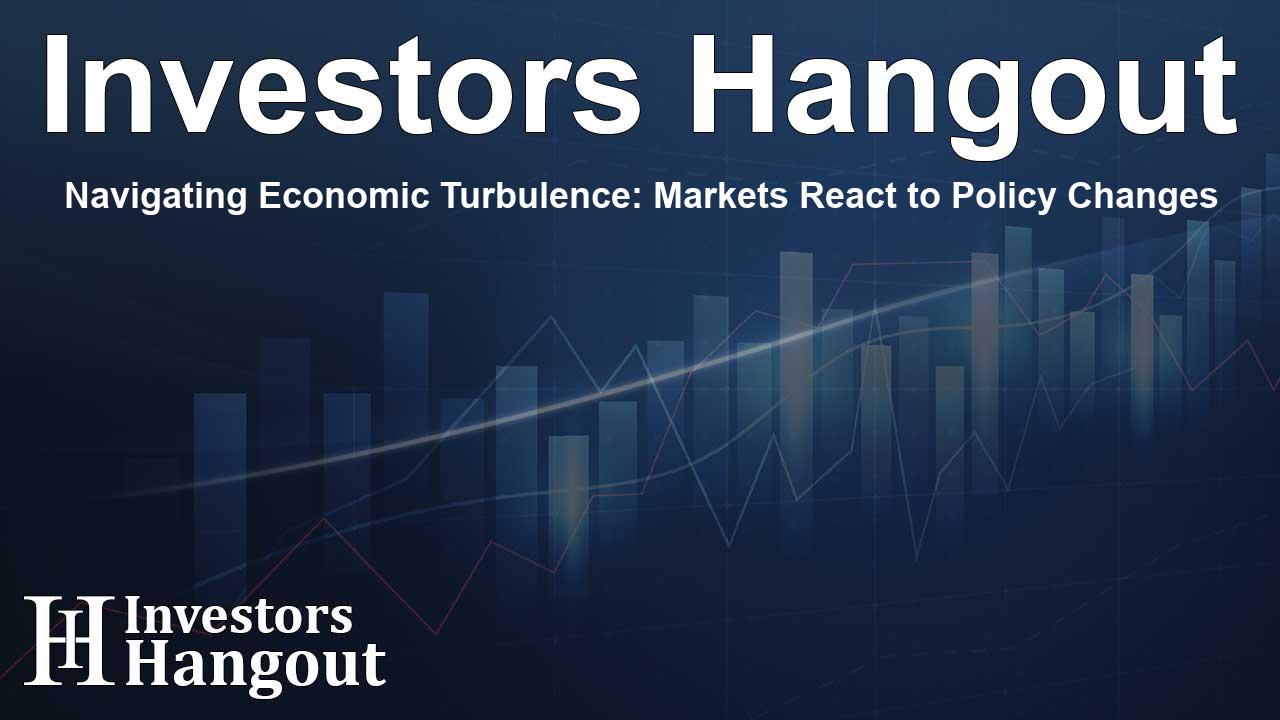Navigating Economic Turbulence: Markets React to Policy Changes

Global Economic Landscape Faces Uncertainty
Financial markets are experiencing turbulence due to a series of dynamic shifts in policy and emerging trends across continents. The interplay of aggressive monetary policy maneuvers and protective tariffs is reshaping the landscape, creating both challenges and chances in various sectors.
The commitment of the US administration to influence central banking measures is notable, with discussions centered around a crucial vacancy on the Federal Reserve board. The potential appointment of an interim governor is a significant strategic move aimed at steering interest rates before crucial upcoming elections. Yet, this initiative raises concerns about the independence of the Fed and the risk of intertwining monetary policy with political motives.
Recent trends indicate a mixed bag in labor market metrics. Although the unemployment rate has fluctuated, the revisions of prior figures suggest a deepening concern regarding economic stability. Officials, including notable figures like Governor Lisa Cook, have expressed apprehension that current indicators could signal a broader decline in economic activity. The mounting uncertainty is causing hesitancy in hiring and investment decisions, impacting overall productivity within the economy.
Impact of Tariffs and Trade Relations
As global trade policies evolve, the recent imposition of tariffs, particularly on semiconductor imports, is sending shockwaves through international supply chains. Companies like Apple (NASDAQ: AAPL) have managed to navigate these new tariffs through significant investments in domestic production. However, many other firms are caught in a tight squeeze as they evaluate the best strategies moving forward amidst shifting policies.
Asia is grappling with its own set of challenges, as trade volumes are dwindling. Reports indicate a downturn in both exports and imports, particularly affecting nations like China and Taiwan. Meanwhile, Japan has begun implementing tariffs on select imports, prompting concern among businesses reliant on seamless trade.
In Europe, the atmosphere is equally cautious, as notable economic indicators take a dip. The market sentiment among investors remains fragile, with businesses like Novo Nordisk (NYSE: NVO) struggling to meet projections, raising flags for economic forecasts. The potential for escalating tariffs has further complicated the situation, as US and EU relations face increased scrutiny and tension.
The Currency Exchange Reality
The ongoing shifts in economic policy are affecting currency exchange rates considerably. The US dollar has experienced a decline, reflecting rising expectations of interest rate cuts by the Fed, contrasted by a strengthening euro amid geopolitical discussions. Recent data on jobless claims and payroll figures are contributing to this volatility, shaping expectations for future monetary decisions.
Market Updates and Company Performances
- McDonald's (NYSE: MCD) has celebrated a notable performance driven by strong global demand, marking a significant success against the backdrop of economic adjustments.
- Exxon (NYSE: XOM) and Chevron (NYSE: CVX) disclosed profits that, although currently facing pressures from fluctuating oil prices, indicated resilience as they surpassed estimates despite tough market conditions.
- Uber (NYSE: UBER)'s upcoming results are anticipated to showcase substantial growth, benefitting from robust expansion in its service offerings and improved financial performance.
Frequently Asked Questions
What is causing the recent changes in the financial markets?
The financial markets are reacting to a mix of aggressive monetary policy changes and trade tariffs imposed by the US, creating turbulence and uncertainty.
How is the US labor market performing?
The labor market shows mixed signals, with a slight rise in unemployment rates and concerns about declining hiring and investment trends.
What is the impact of tariffs on global trade?
Tariffs on imports, especially on semiconductors, are pressuring supply chains and forcing companies to rethink their production strategies.
How are currency exchange rates being affected?
The US dollar has weakened due to anticipated Fed rate cuts, while the euro is gaining strength amidst geopolitical factors and economic data updates.
What are the latest performances of major companies?
Companies like McDonald's and Uber are reporting strong earnings, whereas Exxon and Chevron faced profit declines but still beat expectations, indicating mixed but resilient market performance.
About The Author
Contact Caleb Price privately here. Or send an email with ATTN: Caleb Price as the subject to contact@investorshangout.com.
About Investors Hangout
Investors Hangout is a leading online stock forum for financial discussion and learning, offering a wide range of free tools and resources. It draws in traders of all levels, who exchange market knowledge, investigate trading tactics, and keep an eye on industry developments in real time. Featuring financial articles, stock message boards, quotes, charts, company profiles, and live news updates. Through cooperative learning and a wealth of informational resources, it helps users from novices creating their first portfolios to experts honing their techniques. Join Investors Hangout today: https://investorshangout.com/
The content of this article is based on factual, publicly available information and does not represent legal, financial, or investment advice. Investors Hangout does not offer financial advice, and the author is not a licensed financial advisor. Consult a qualified advisor before making any financial or investment decisions based on this article. This article should not be considered advice to purchase, sell, or hold any securities or other investments. If any of the material provided here is inaccurate, please contact us for corrections.
